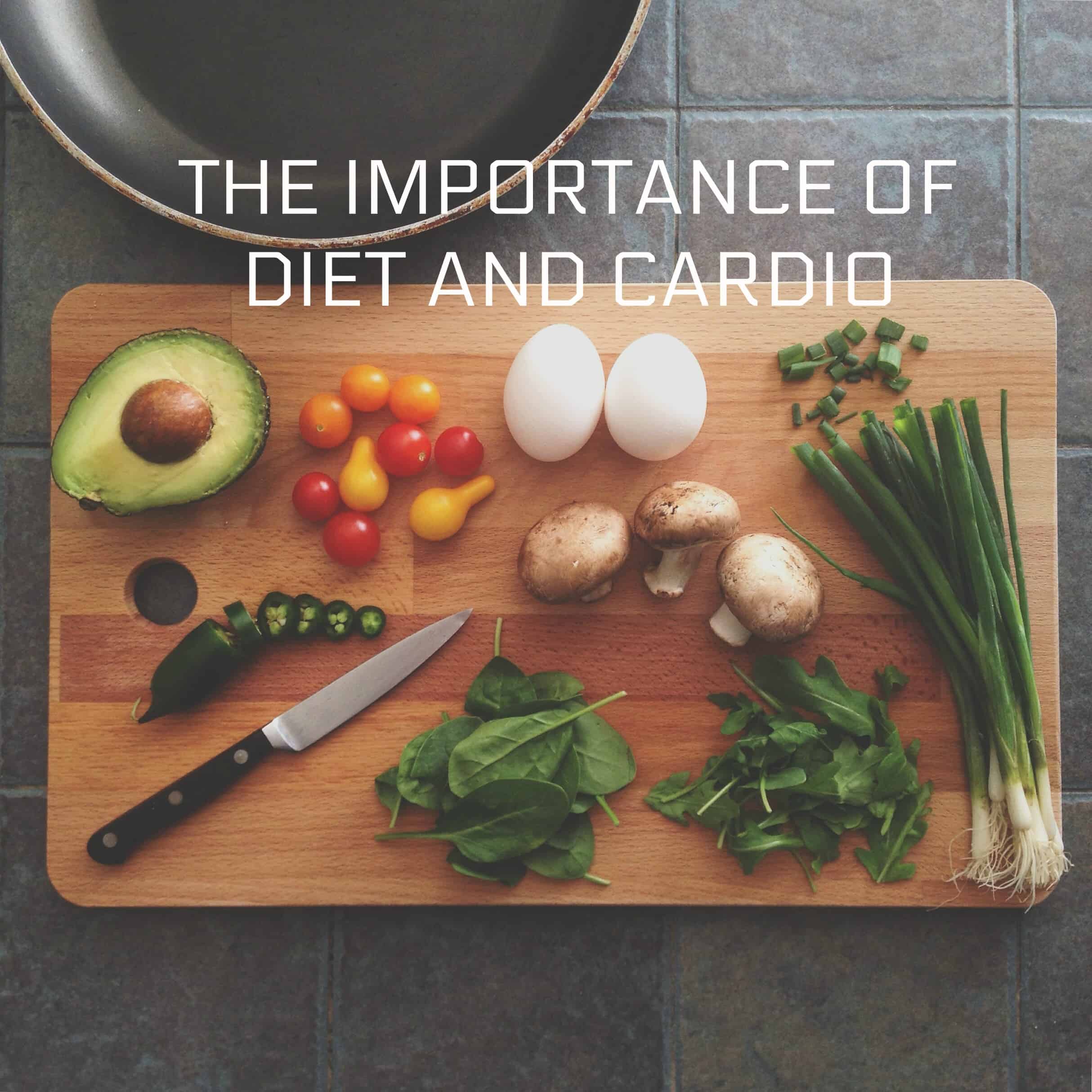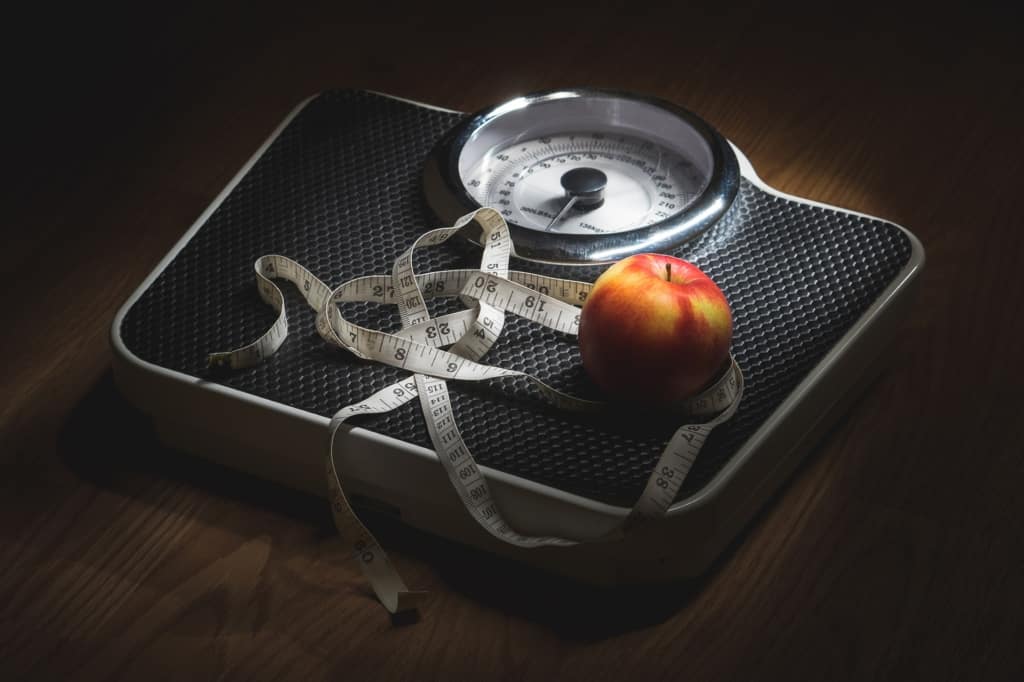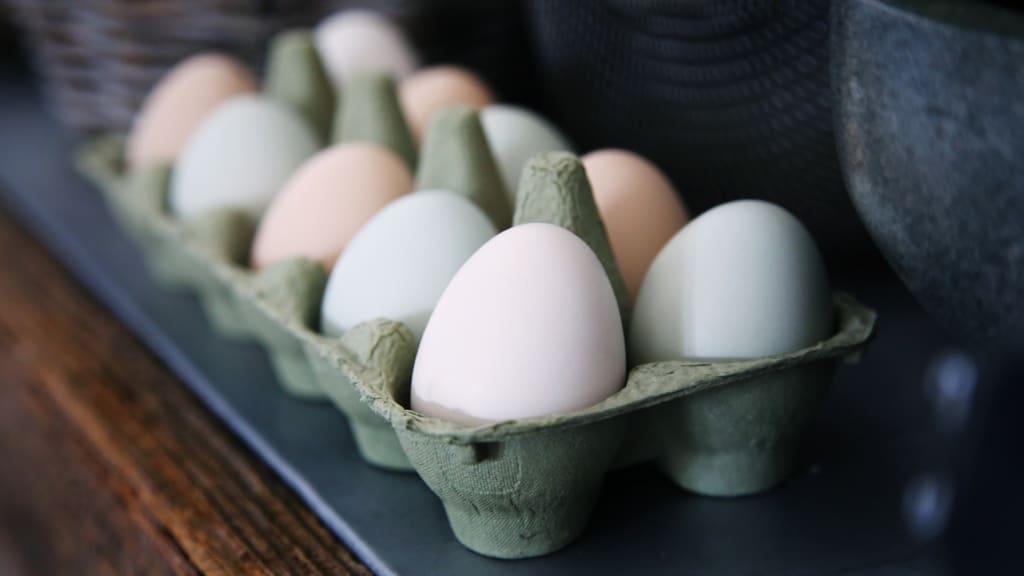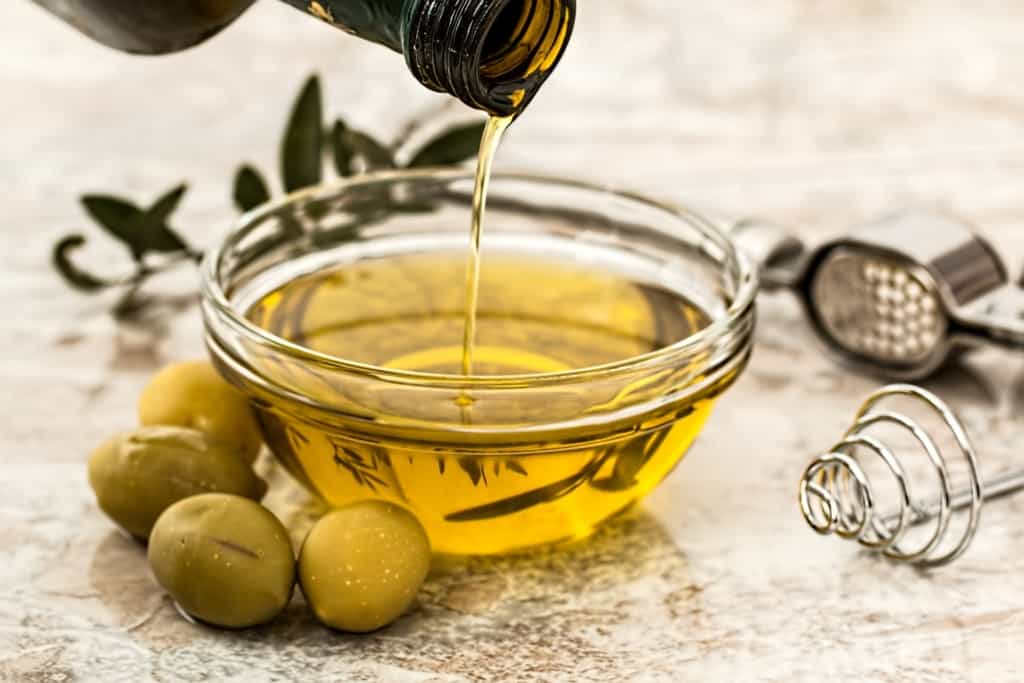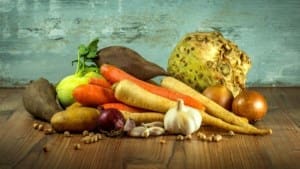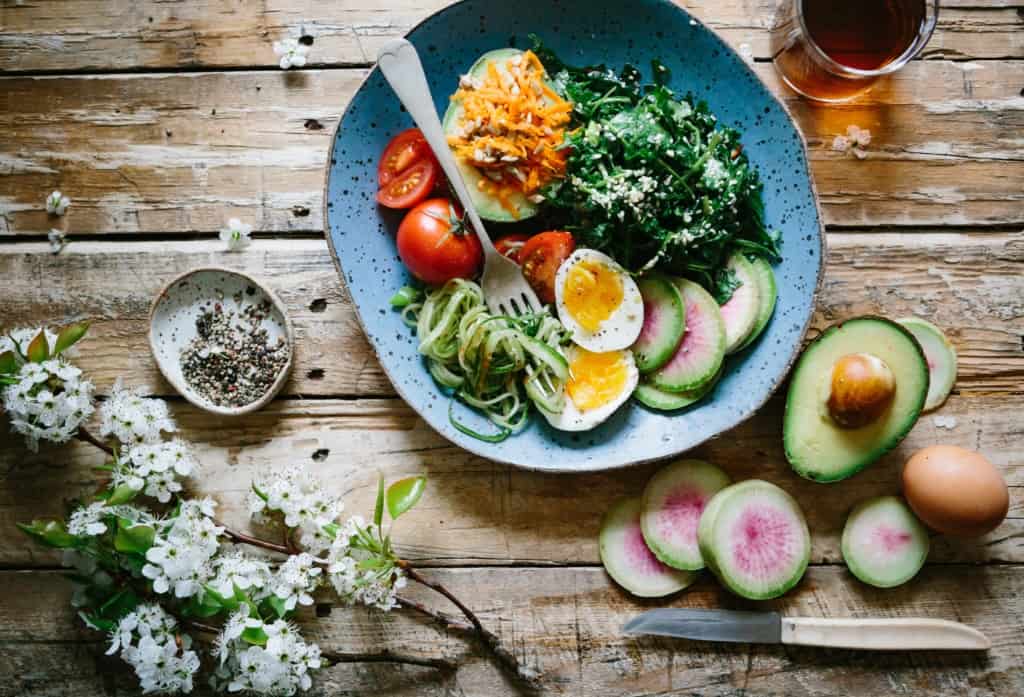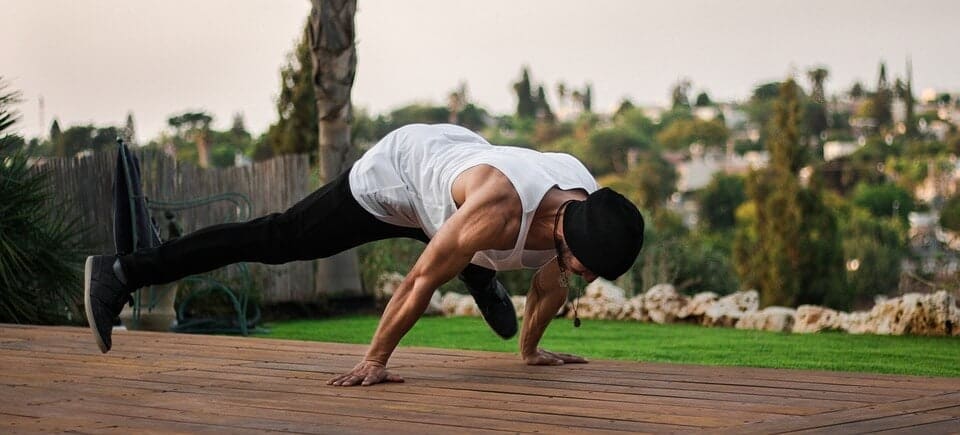I’ve talked a lot in this series about weight training. If you’ve made it this far, you should have a pretty good idea of the fundamentals, the different training styles, and which one works for you. Now let’s talk about the two dirty words in fitness – diet and cardio.
And while they may be a pain in the ass for most people, they’re important. REALLY important. If you neglect these two things, then the best weight lifting routine in the world won’t do anything for you. Not only will you not burn an ounce of fat, you’ll also have a really tough time building muscle.
The following is a crash course in nutrition and cardiovascular training. Since I have quite a bit to cover, I’ll mainly be focusing on nutrition for the purposes of body composition (losing fat and building muscle). However, I’ll also be touching on food quality and why it matters.
Calories
Contrary to what many people think, a calorie isn’t actually a “thing”. It’s a unit of energy, and it works like this – 1 calorie is what you’d need to raise a gram of water by 1 degree (celsius).
Everything you eat has a certain caloric value (or a certain number of calories).
Now, contrary to all of the theories that you may have heard out in fitness land, losing and gaining weight fundamentally comes down to energy balance.
Your body has a certain number of calories that it requires per day to function. This includes things like movement and exercise, but it also includes all the things your body does at rest (respiration, organ function, etc).
Here’s the equation you need to memorize, and it’s actually a pretty simple one:
If you want to lose weight, you need to be eating fewer calories than you’re losing. If you want to gain weight, then you need to be eating more.
When I talk about gaining and losing weight, understand that this applies to both fat and muscle…with a bit of nuance.
When it comes to gaining fat, it’s a pretty straightforward process. In fact, if you wanted to get super chubby and just balloon up, it would be really easy – eat more, and show absolutely zero restraint in your dietary choices.
Not only will you gain fat, but you’ll gain it in a predictable, linear fashion (the more you eat, the more flab you’ll gain).
Hence why so many people are overweight.
Fortunately, that same principle applies to losing fat as well. If you want to lose fat, you need to eat fewer calories. And the fewer calories you eat, the more fat you’ll lose.
Now, there is a limit to how far you can take this principle. If you restrict your calories too much for a long enough period of time, your body will eventually start to break down muscle for fuel. You also need to be sure that you’re eating sufficient protein (which we’ll talk about in the next section).
But for the most part, the calorie to fat loss ratio is pretty straightforward.
When it comes to gaining muscle, the process isn’t so simple. Along with regular weight training, you need to make sure you’re eating in a caloric surplus (i.e. you’re taking in more calories than your body needs to perform its daily functions).
However, contrary to what a lot of the bros will tell you, more food does not equal more muscle, and you don’t need to be eating all that much extra.
How To Set Your Daily Caloric Intake
Despite the marketing attempts to convince you otherwise, most people generally understand the concept of calories.
Unfortunately, when it comes down to the dirty details, “caloric illiteracy” rears it’s ugly head. Most people have absolutely no idea a.) how many calories are in their food, and b.) how many they need to eat per day to gain, retain, or lose weight.
Maintenance Calories
Your maintenance calories are exactly what they sound like – the number of calories you need to eat per day simply to maintain your weight.
There are a few different ways of determining this, including a number of popular “calorie calculators” (the Katch McArdle formula is one of the most popular).
While these calculators are pretty accurate at determining your basal metabolic rate (the number of calories burnt at rest), they fail to account for the wide discrepancies in daily movement between people.
So, here’s what I’m going to have you do. For the next week, I want you to keep track of three things every single day – your weight, the number of calories you eat per day (feel free to use an app like My Fitness Pal), and your waist measurement (measure around your belly button with a tailors tape for best results).
At the end of the week, take the total number of calories and divide by seven – if your weight has stayed the same, then this number will be (approximately) your maintenance calories.
If you’ve lost or gained weight, then simply do the same thing next week by adding or subtracting 200 calories per day.
Rinse and repeat until your weight remains stable.
While calorie tracking is definitely more of an art that a science in many ways, having at least an estimation of your maintenance calories will just make everything easier.
Cutting Calories
If your primary goal at the moment is to lose fat, then you’re going to want to set your daily intake at about 300 calories below maintenance for the next few months.
For example, if you’re a guy who needs about 2500 calories per day to maintain his weight, then you’re going to want to be eating roughly 2200 calories per day in order to shed fat.
During this process, you’re also going to want to keep track of your results using the same three metrics you used for determining maintenance calories (weight, daily caloric intake, and waist measurement).
If you find that you’re not losing weight after a few weeks, simply adjust your calories down by an extra 100-200.
Again, rinse and repeat until the weight starts coming off. Ideally, you should be losing anywhere from 1-2 pounds per week.
If you find it hard to maintain your caloric intake low enough to lose weight, you should look into intermittent fasting. After starting this myself, my appetite has done a 180. I only eat when I want to and I am rarely ever hungry. Personally, I follow the 16/8 method, and highly recommend it, but you can do whichever you like
“Bulking” Calories
I’ve put “bulking” in quotation marks because, while it is a valid concept, it’s often abused by gym bros who are just looking for an excuse to eat like a pig.
Most guys will find that simply adding 200-300 calories per day is more than enough to add muscle.
Unlike losing fat, however, gaining muscle is a much slower process. And unless you’re a complete beginner, you can reasonably expect to only gain a pound or two of muscle per month.
During this period, you should also pay close attention to your measurements. In addition to ensuring minimal fat gain by tracking your waist, you should be measuring your chest, shoulders, arms and quads (you want those numbers to be going up).
Protein
With the exception of calories, your protein intake is going to be the most important variable in your diet.
The reason protein is so important is that it’s comprised of amino acids, which act as the fundamental building blocks of muscle (among other things).
If you’ve been spending your time reading bodybuilding.com articles (or god forbid the forum), you’d be forgiven for thinking that you need to force feed yourself 200-300 grams of protein per day.
Here’s the reality – while a high protein diet is critical for muscle development, you need to understand that it’s all relative. The “recommended requirements” are set at 55 grams of protein per day for an average (very sedentary) adult North American male.
Any amount consumed above that is considered high.
For those of you who are active and lifting weights (which is all of you if you’re reading this series and taking action), your numbers are going to be quite a bit higher – anywhere from 0.8-1 gram of protein per pound of bodyweight per day.
So, if you’re a 180 pound male, you should be consuming between 144-180 grams (if you’re cutting fat, you can go a little higher, since protein has been shown to preserve muscle in a calorie deficit).
In terms of protein sources, your best bet is to be getting them from whole foods, including
- Chicken
- Beef
- Turkey
- Eggs
- Whey protein
- Casein protein
- Fish
Good plant based protein sources include
- Nuts
- Beans
- Spirulina
- Quinoa
Carbs And Fat
The next step is to determine how much fat and carbs you should be eating to round out your diet. This is going to depend largely on you, your preferences, your lifestyle, and your current health status
First thing’s first – if you’re overweight, you’re more than likely going to want to cut your carbs.
While carbohydrates in and of themselves aren’t the enemy, the fact of the matter is that most people eat way, way too many of them. The overconsumption of carbohydrates in combination with a high level of body fat can result in truly horrific medical complications (everything from diabetes to high blood pressure).
So, if you’re overweight and looking to drop fat, consider eating between 100-150 grams per day. While it won’t result in weight loss in and of itself, it will definitely improve your health and make it easier to stick with your diet (a high protein and fat diet has long been known to blunt hunger). You could also follow the Keto diet, which is a bit more extreme than this, but followed properly, will result in melting away that excess fat on your body.
With that said, some people can handle more carbs. These people tend to already be on the lean side, with good blood sugar levels, insulin sensitivity, and general health markers. A lot of people who are bulking also find that temporarily increasing their carbs makes it easier to pack on muscle.
If you are going to ramp up your carbs, you do need to make sure that you’re choosing high-quality sources and not…you know, Fruit Loops.
Brown rice, sweet potatoes, and beans should all be your go-to sources.
Regardless of whether you take a low carb or a moderate carb approach, you need to make sure that your fat intake is sufficient since fat is (among other things) responsible for the hormonal functioning and contributes to testosterone production.
Cardio
Last but not least, we have cardio.
And unfortunately, when it comes to training for fat loss, most people end up on two opposite ends of the spectrum.
On the one hand, there are the guys out there that absolutely avoid cardio at all costs. Most of them justify their aversion to the treadmill with the misguided belief that cardiovascular training will stunt their weight training and eat away at existing muscle (I believe the technical term for this is “losing your gains”).
On the other hand, you have people with an overly optimistic view of cardio and its ability to burn fat. Usually, these are the same people that you see pounding the pavement in their overpriced Nike training gear day after day while going home and eating a diet of highly processed carbs.
The truth is somewhere in the middle. The sad reality is that, unless you’re a professional athlete, you can’t out train a bad diet.
This is especially true if you’re trying to lose fat.
Let me put it to you this way – an hour of jogging will burn, maybe, a few hundred calories. A single Krispy Kreme donut alone has almost 200 calories.
But if you’ve figured out your caloric needs and you’re being diligent about your food choices, adding in cardio is a phenomenal way to burn extra calories, meaning you don’t have to be quite as restrictive with your diet.
It’s also the right move from a health perspective. Having a functioning and healthy cardiovascular system is absolutely vital for everything from heart health to your daily energy levels (for more information on what kind of training you should be doing, be sure to check out the Exercising Starters Guide ).
A Final Note On Diet
If you’ve made it this far, congratulations. You now know more about diet and nutrition than 90% of the general population.
With that said, some of you may be under the impression that the only thing you need to do to lose weight and gain muscle is to balance your calories and macronutrients (with zero regard for food quality).
So, if you think you’re going to be consuming nothing but protein shakes, birthday cake, and butter for the next few months, I have bad news for you – not only will you not be able to stick with your diet, you’ll also be setting yourself up for a whole host of health issues.
Remember, highly processed food is designed to be as appetite stimulating as humanly possible. That is NOT what you want if you’re trying to lose weight (or even if you’re trying to gain muscle in an intelligent, controlled manner).
My advice – stick with real, wholesome, unprocessed food. Trust me when I tell you it’ll be much easier to maintain your diet, avoid hunger, and workout at a high level.
You’ll thank me later.

